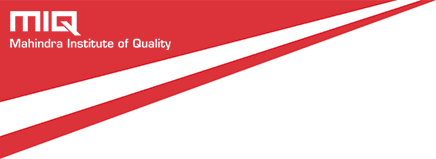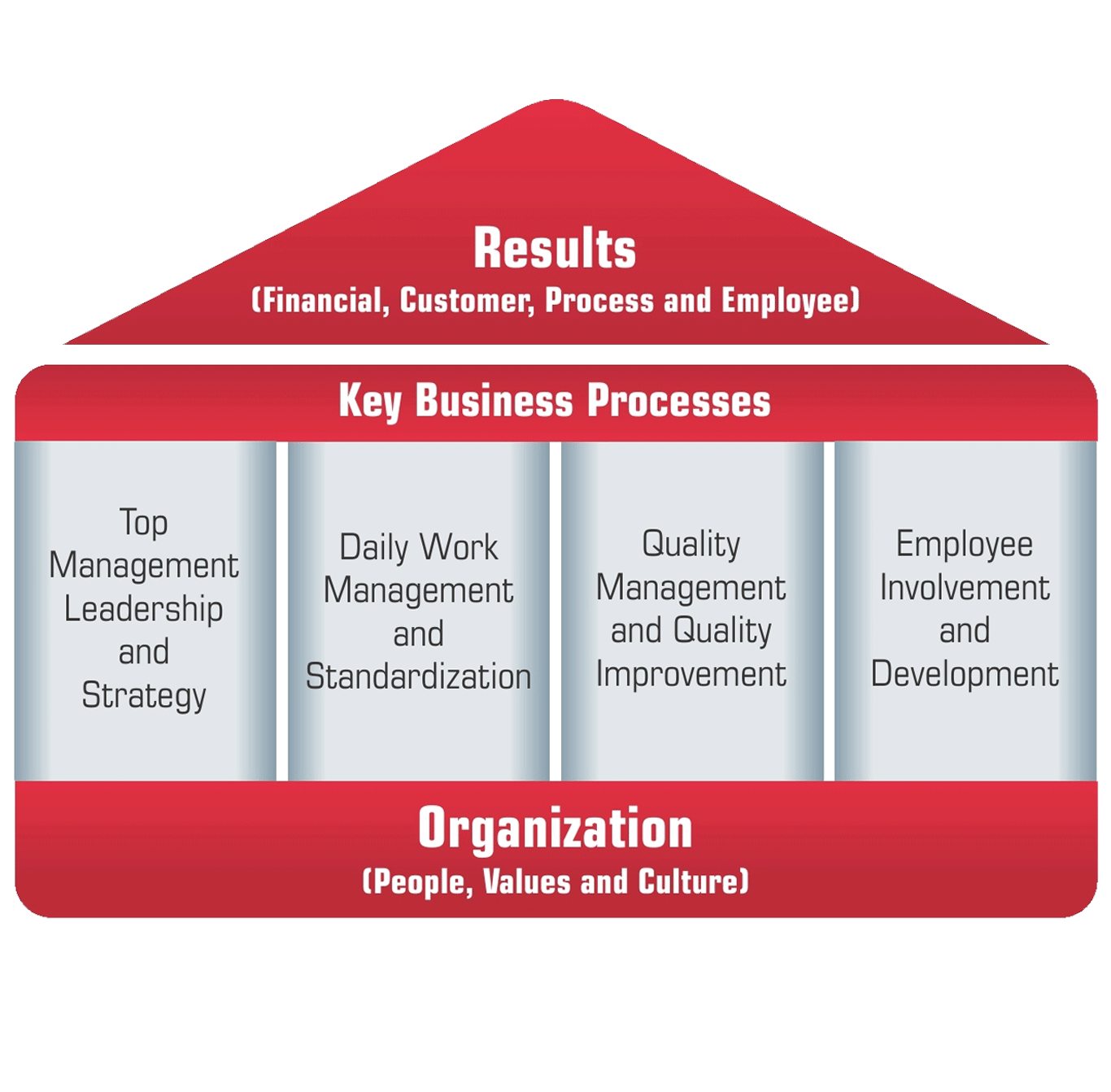
LOADING
All companies in the Mahindra group are expected to adopt TMW in the conduct of their businesses. Adoption of TMW by a company may, however, need to be phased based on factors, among others, such as when the company was set up or acquired by the group. In addition, a company needs to achieve a minimum critical size of its operation, before it can commit the necessary management time and resources to the practice of TMW. Such factors will be taken into account while seeking to include a company or business for TMW assessment.
The diagram below represents the framework which can guide the company in structuring the adoption of TMW.

The framework has four important elements:
People, Values, Culture
Each company has its own foundation in the form of an organization consisting of people, values and culture. TMW can be adopted by any company irrespective of the nature of its business activities and organization. TMW helps a company strengthen its foundations through the encouragement of systematic and continuous improvement in the way the company conducts its business and through the adoption of Group Common Policies and Practices. During assessment, assessors would get an appreciation of these aspects through their interaction with employees during company presentations as well as work-site visit where they would get a sense of the real life work environment within the organization and the extent to which Group Common Policies and Practices have been adopted.
Management Processes are fundamental to the way in which any company strives for excellence. These are processes which are common to all companies irrespective of size or industry. Every company implementing The Mahindra Way is expected to specifically plan improvements for the following four processes:
The process of formulating the company’s long term vision and goals, translating these into future milestones as well as into strategic priorities and action plans, communicating and deploying these across the organization and setting up review systems to ensure efficient monitoring and corrective steps
The process of translating strategy into routine work and standardizing activities at all levels in the company in a manner which maximizes efficiency and productivity
The process of, firstly, setting up a system for quality management and, secondly, promoting continuous improvement in quality of products, services and processes in the company
The process of developing the capabilities of the company’s employees and engaging them in the company’s long term goals and strategic initiatives so that are fully involved in the company’s quest for excellence
Besides the above four Management Processes, a company is expected to deploy the TMW approach to promote excellence in all its Business Processes. These are processes which are critical to the day-to-day running of a business. These may be different in different businesses or industries. Typically, they may determine the input – output relationship between different departments and functions including support functions.
To begin with, in keeping with the TMW principle of prioritization, a company will select those key Business Processes which are critical to its long term business goals and strategy. Having selected these, the company is expected to work systematically towards improving the quality of the selected processes.
In subsequent years, companies will increase the number of Business Processes under The Mahindra Way so that over a period of time, the company deploys TMW across the organization and progresses successfully on its journey of improving quality and achieving excellence in all its activities.
Financial, Customer, Process, Employee
TMW is a business-driven initiative of the Mahindra group. It follows that the focus on Management and Business Processes will translate into sustainable, improved business results for all stakeholders of the company. TMW, therefore, requires structured budgeting and planning of results in areas such as financial, customer satisfaction, process efficiency, employee satisfaction and the like.
In looking at business results, TMW promotes the PDCA approach which requires specific targets against which actual results achieved are reviewed, and both – achievements and non-achievements – are analyzed so that learning is used for future business planning.